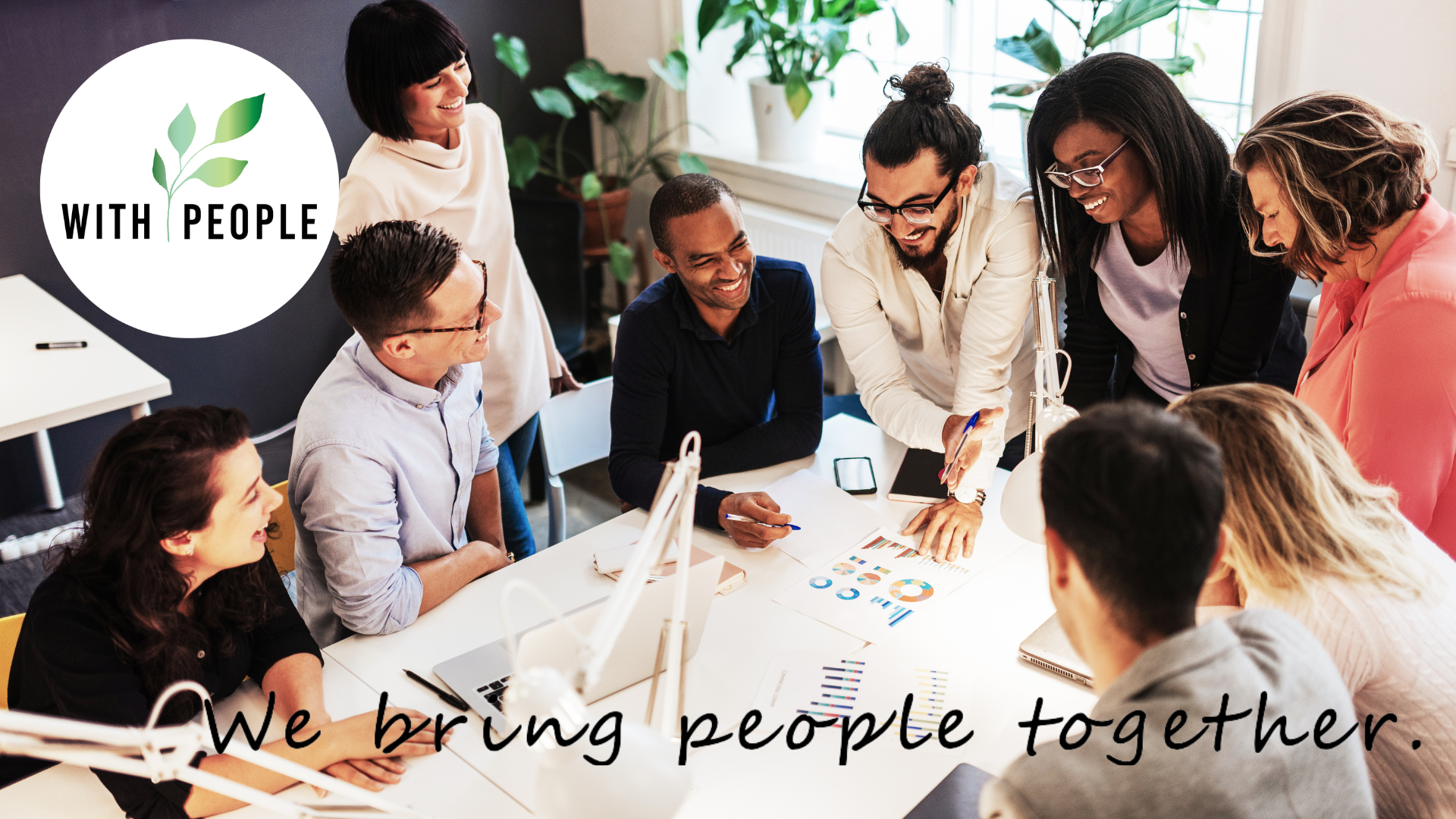2020 Initiative and Industrial Relations List for With People Inc.
Inventory of service activities delivered to clients in 2020, a report by Sam Kemble
A Word from the Executive Operations Officer
We diversified our client base and service offerings during the year, added capacity, strengthened our balance sheet, and improved our processes. We supported organizations to meet extraordinary and complex challenges through various service offerings.
We are inspired by our client’s character, understanding and compassion towards their employees, union partners, and stakeholders, all during a year that could strain any relationship. We are grateful to continue serving industries and enterprises in Canada.
We wish all well as we approach the New Year.
Respectfully submitted,
Sam Kemble
Executive Operating Officer
Industrial Relations – Negotiations
This year in industrial relations, we bargained collectively with various Building Trade unions in Saskatchewan, CUPE in Edmonton, Unifor in Windsor, and UFCW in Edmonton. Also, we engaged in First Nation Mutual Benefits Agreement Negotiations West of Edmonton.
Industrial Relations
We continue to deepen our service and experience in general industrial relations through grievance administration, progressive discipline support, collective agreement interpretation, group lay-off and bumping-process support, coal-to-gas transition supports, recall list administration, temporary layoff supports, arbitration case management, contracting out, severance liability included in a temporary layoff context, right to refuse unsafe work in a COVID-19 context, pension plan and health benefits and insurance administration, and common employer and successor employer analysis.
Policy Development
We engaged in robust alcohol and drug policy development and costing models, participated in public policy creation and review through the Edmonton Chamber of Commerce, and developed several policies and practice documents in employment administration.
Training
Ongoing training and workshops were developed and delivered, covering performance management, labour and employee relations, industrial relations, anti-harassment, bullying and violence. Work continues to migrate these modules to an online delivery format for broad and safe accessibility.
Recruitment
Significant time has been invested in enhancing our craft recruitment process, including modules for equity hiring and onboarding. We supported clients to develop a 48-hour rule hiring process to coincide with hiring hall scenarios. Cost models have been developed and simulated for craft sourcing, recruitment and onboarding for numerous multi-year projects. Our firm provided direct recruitment support for a plant south of Edmonton, a shutdown near Regina, road construction in Calgary, a pipeline in BC, a plant west of Edmonton, an institutional project in Terrace, recruitment for project administration in Northwest BC, a manufacturing facility south of Edmonton, several residential projects in the Greater Vancouver area, an infrastructure project in Lloydminster, and a roadbuilding project in the Greater Vancouver area.
We have adopted a positive bias into our recruitment process that prefers Indigenous, BIPOC and women candidates.
COVID-19
2020 brought the need to support clients with Covid-19 response measures, including service for essential service employees, implementing masking, hygiene, and physical distancing policies while restructuring work arrangements through staggering shifts and rotating site presence protocols. Various sick and other leave provisions required interpretation within a pandemic context. We also ensured rights and obligations to refuse unsafe work were adequately adhered to within a COVID-19 context. The pandemic also brought unique factors requiring a considered review of human rights and employment statute-protected accommodations, including leave and work accommodations. Many employers also found it necessary to navigate both the in and the out-of-work-from-home transitions.
We are grateful for the opportunity to be of service during such challenging and dynamic times.
Industrial Relations – Operations / Execution
We engaged in front-end engineering and design (FEED) support for significant capital projects’ workforce delivery and the management component. We increased our forecasting and costing analysis capacity and conducted field execution productivity studies, developed project costing studies, and conducted labour posture comparison studies for construction and maintenance. We developed and supported wall-to-wall craft recruitment models.
Justice and Social
We provided Jordan’s principal policy, advice, and advocacy within our social justice portfolio. We developed Treaty-based education agreements and policies.
Together with expert volunteers, we are about to release an employer mental health and wellness practice document.
We commenced service to the Board of the Colbourne Institute for Inclusive Leadership.
As a firm, we are taking an aggressive approach to positive bias recruiting to ameliorate disadvantaged and historically disadvantaged groups’ inequities.
With People Inc. Internal Capacity
In 2020, the firm increased recruitment, project controls, human resources and data science capacity.
We made investments in achieving a CPHR Certification, investigative report writing training, first aid training, and Principles of Health and Safety Management.
We afforded access to professional coaching to staff to increase career development and the strength of our team.
We created an operational contingency reserve for our operations to de-risk the potential for Covid-19 to impact our staffing levels. We also adopted an accounting policy to carry a fully funded severance liability on our balance sheet.
Throughout 2020 we continue to develop apps for release in 2021, including a force ranking app – 90% complete, a witness credibility app – 70% complete, a quantum of discipline review app – 70% complete. Also, we rebuilt our workforce applicant tracking and onboarding system – 70% complete.
In the ongoing interest of advancing awareness and education in human resources and employee and industrial relations, we maintained our educational Blog, Podcast, and Video Channel (hosted on YouTube).
Visit our homepage for more information about our human resources and industrial relations firm with offices in Edmonton, Alberta, Prince George and Victoria, British Columbia.





Recent Comments